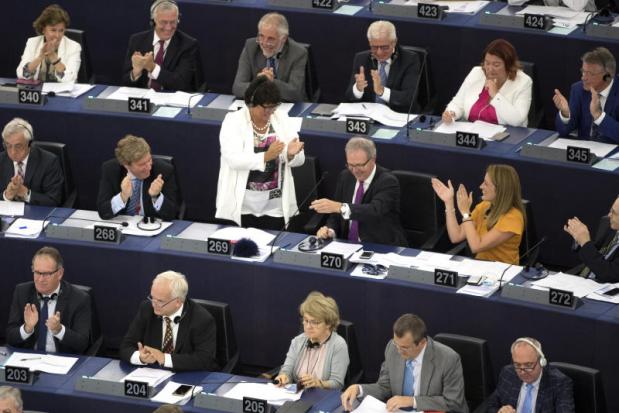
European Union lawmakers voted on Wednesday to force Google (GOOGL.O), Facebook <FB.O > and other technology firms to share more revenues with European media, publishers and other content creators in a shake-up of copyright rules.
The European Commission, which began the debate two years ago, says the overhaul is necessary to protect Europe’s cultural heritage and create a level playing field between big online platforms and publishers, broadcasters and artists.
Of the lawmakers, 438 voted in favour while 226 were against, with 39 abstentions. The next step is negotiations with the Commission and the 28 EU countries to reconcile their different positions before existing copyright laws are amended, with a final vote expected next year.
French President Emmanuel Macron said the vote was a “great advance for Europe”, while the Commission’s digital chief Andrus Ansip said it sent a strong and positive signal of a reform designed to protect EU researchers, educators, writers, media and cultural heritage institutions.
The Federation of European Film Directors (FERA), the Federation of Screenwriters in Europe (FSE) and the Society of Audiovisual Authors (SAA) also welcomed the vote.
Google however called it a disappointing outcome.
“It’s bad for creators, for entrepreneurs and for innovators,” Google’s chief business officer, Philipp Schindler, said at the dmexco digital marketing fair in Cologne.
Web browser company Mozilla said the fight was not over.
“We at Mozilla will do everything we can to achieve a modern reform that safeguards the health of the internet and promotes the rights of users. There’s simply too much at stake not to,” the company said.
European consumer body BEUC also criticised the vote.
“It is beyond comprehension that time and again EU policy makers refuse to bring copyright law into the 21st century. Consumers nowadays express themselves by sampling, creating and mixing music, videos and pictures, then sharing their creations online,” said Monique Goyens, BEUC director general.
CORPORATE PROFITS
Lawmaker Julia Reda from the European Pirate Party, who had favoured more moderate reforms, said changes to a tough line adopted by a key parliamentary committee were merely cosmetic and two measures could endanger the freedom of the internet.
One could force Google, Microsoft (MSFT.O) and others to pay publishers for displaying news snippets. However, snippet taxes introduced in Spain and Germany in the past had the opposite effect, with publishers reported plunging traffic to their sites.
The other measure would require online platforms such as YouTube and Instagram to install filters to prevent users from uploading copyrighted materials, which critics say could lead to censorship.
“By endorsing new legal and technical limits on what we can post and share online, the European Parliament is putting corporate profits over freedom of speech and abandoning long-standing principles that made the internet what it is today,” Reda said.
But lawmaker Axel Voss, who had been steering the issue through parliament, said he had made a number of compromises and introduced safeguards for small firms following criticism of his initial tough stand.
“We have seen so far that many large tech companies have been exploiting works of artists and creators without properly paying them. Therefore we need to establish a fair balance between European right-holders and the online platforms,” he said.



